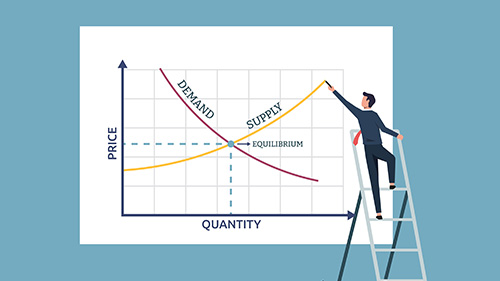Cramming (the Right Way) for the AP® Economics Exams
There is less than a month until the AP® Econ exams. It is crunch time for students—especially those taking multiple AP®exams. These exams can be a...
AP & Honors Mathematics
Explore Wiley titles to support both AP and Honors mathematics instruction.
Literacy Skills & Intensive Reading
Connections: Reading – Grades 6–12
Empower student success with a proven intensive reading program that develops strong reading skills in striving readers.
Drama, Speech & Debate
Basic Drama Projects 10th Edition
Build students’ confidence and competence with comprehensive, project-based theatre instruction.
Literature
Connections: Literature
Support learners as they study dynamic, relevant texts and bring the richness of diverse voices to students through literature.
Literature & Thought
Develop critical thinking, reading, and writing across literacy themes, genres, historical eras, and current events.
Language Arts
Vocabu-Lit® – Grades 6–12
Help students build word power using high-quality contemporary and classic literature, nonfiction, essays, and more.
Connections: Writing & Language
Help students develop grammar, usage, mechanics, vocabulary, spelling, and writing and editing skills.
Reading/English Language Arts
Measuring Up to the English Language Arts Standards
Incorporate standards-driven teaching strategies to complement your ELA curriculum.
English Language Learners
Measuring Up for English Language Learners
Incorporate research-based best practices for ELLs with an approach that includes a focus on language acquisition strategies.
Mathematics
Measuring Up to the Mathematics Standards
Incorporate standards-driven teaching strategies to complement your mathematics curriculum.
Foundations
Measuring Up Foundations
Help students master foundational math skills that are critical for students to find academic success.
Science
Measuring Up to the Next Generation Science Standards
Give students comprehensive NGSS coverage while targeting instruction and providing rigorous standards practice.
Assessment
Measuring Up Live
Deliver innovative assessment and practice technology designed to offer data-driven instructional support.
For a better website experience, please confirm you are in:

It's the middle of the school year. The students you had hooked ever since your first week of activities are now starting to feel the grind of the school year. Economics is equipped to be the “dismal science,” and this helps feed everyone’s feelings this time of year. Your fun activities now seem ordinary. You have already done the online quizzes, live trivia, and group projects, used your whiteboards, and assigned those fun YouTube videos for homework. Your class has gotten “used to you.”
At this time of year, the weight of the end of the semester is upon everyone. Students are asking more and more about grades, parents too. Now is the perfect time to try something new to give your students and you the little pep you need to push through the end of the year. But what to do? I am glad I asked that question!
Do a project about students’ families. Get students to talk with their families. Whatever topic/unit you are in, assign a conversation/interview with a family member. For example, if you are in the role of government in the microeconomics unit, then create a 10-question interview (carefully) for a student to interview a family member about their thoughts about local government. If you are teaching macroeconomics, maybe you are in a macro policy unit, create the same interview assignment.
Hint: I put at the top of these assignments that a student need not write anything down for the answers to the questions. The assignment is assessed by the reflection question at the end. What I care about is that each student had a meaningful conversation with an adult and reflected on what they had to say. I make sure to put the disclaimer at the top of the assignment in big, bold font.
Make it about what economics can do in their lives. We teach students a lot about opportunity cost. Opportunity cost is pretty much applicable to any and all units in economics. Ask students to complete a task. For example, you can pick a list of “typical” grocery items (one loaf of bread, a 12-pack of pop, a dozen eggs, a pound of bologna, etc.) and have students look up the items at different stores. Have students compare the totals from each store. Students will reflect on each store and see that prices might vary. However, the real kicker is when they multiply by 52 weeks. The savings become more real as the number is larger. (Another easy task is to have them build a coffee drink from their favorite coffee shop. They have to love this drink. Their favorite. They want to drink it every day. Now, let’s use $3.50 as a price. If a student were to buy that coffee drink every day of the year, that would amount to almost $1,300! What could they do with an extra $1,300 per year? Answer: A LOT!) If students have a job, they can calculate how many hours of work they would need to complete to buy something.
Tell them stories about your life. Some might be shy to share stories about their own lives. I know that I am. As the year goes on, I get more comfortable sharing with classes. Students need to learn about credit. They love to hear about buying your first car. Students love your stories. Give your fans what they want!
Make time for break time. Give your students a break. Go ahead. Every school has different feelings about this. During the pandemic, we came to understand just how important breaks were for students. Take 10 minutes out of class to bolster students’ mental well-being (or, as one of my favorite children’s books tells its readers, “fill up their bucket”). You can decide to take a brain break, debate their favorite milkshake flavor, or just give them the 10 minutes to organize themselves. It is important that this time not be used for screen time. Their brain needs a chance to recharge, even if it is 10 minutes.
Good luck and let me know which strategy you tried or your own strategy for this time of year in the comments.

There is less than a month until the AP® Econ exams. It is crunch time for students—especially those taking multiple AP®exams. These exams can be a...

So, it’s almost time for the AP Economics exams. Hopefully, you have started a countdown. If not, that is step one. You want to remind students (so...

We want students to discover and wonder about the world around us. That is at the core of social science education. How do we explain the world...

Over the years I’ve come to realize that, like any other subject, Macroeconomics is best retained when connections are made. It is for this reason...

Teaching Advanced Placement® classes can be daunting. You’ll ask yourself questions like “what is the rigor?”; “How do I test them?”; “Should I stick...

Let’s face it, poorly answered free response questions are hard on both teachers and students. Most students shudder at the thought of answering the...

Inflation is defined as a rise in the general level of prices over time. For some students, it can be difficult to comprehend unless they actually...

AP Statistics can feel abstract for students—formulas, distributions, and probability rules can easily become a maze of procedures. But when data is...

This interactive webinar focuses on scaffolded approaches to the finishing touches necessary for higher-level success on the LEQ and DBQ portions of...

When teachers consider textbooks for AP U.S. History, one question arises repeatedly: Why AMSCO? After all, there are excellent survey texts written...

It’s the time of year when teachers and students begin their final push towards preparing for the AP Human Geography exam. Teachers and students...

This year’s AP Psychology Exam will be the first exam with the new curriculum which focuses intensely on research. Some may wonder about this focus...
